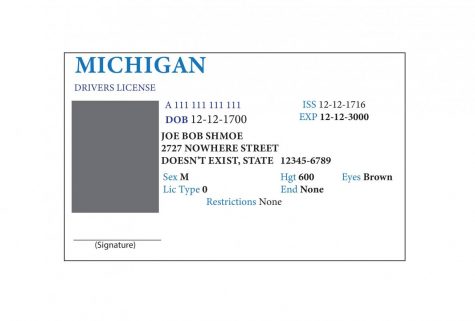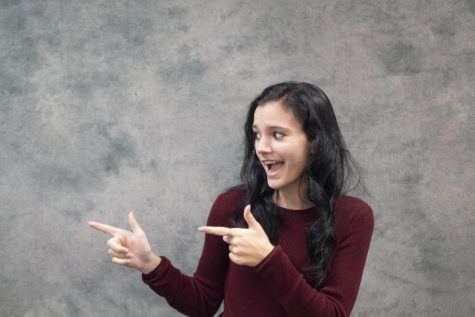Proposals 1, 2, and 3 Pass
Illustration by Jonathan Callison
Proposal two aims to end gerrymandering in Michigan.
November 23, 2018
Proposal Two
Written by Mikayla Graham
On Tuesday, Nov. 6 of 2018, Michigan voters approved Proposal Two to change the way the state’s political lines are drawn. According to Ballet Pedia, Proposal Two passed with 61.27 percent of voters in favor and 38.73 percent of voters opposing.
Before the Nov. 6 voting, the Michigan State Legislature was responsible for drawing the congressional and state legislative district boundaries, which were under the governor’s veto power. The last time the state legislature took on congressional maps was back in 2011 after the 2010 U.S. Census. During that time, Republicans controlled the state senate, state house, and governor’s office.
The anti-gerrymandering proposal will allow Michigan’s constitution to create a 13 member independent citizens redistricting commission. This commission will be composed of four Democrats, four Republicans, and five individuals who do not reside with either political party. Proposal two will have specific criteria: commissioners will be required to follow federal laws, include equal population sizes, and include communities of similar historical, cultural, or economic interests. There will be no advantages to either political party, incumbents, municipal boundaries, or compactness.
The campaign was led by a committee known as Voters Not Politicians who were in support of the proposal. The committee raised 15.64 million dollars for the campaign, with opposing committees, Citizens Protecting Michigan’s Constitution and Committee to Protect Voters Rights, only raising 393,180 dollars.
Ann Arbor resident Nancy Wang, who is the president of Voters Not Politicians, said she would not be surprised if individuals were upset about the approval of proposal two. According to Wang, no politician of any political party would want to give up the power they currently have to draw lines that will benefit their party as a whole.
“It’s certainly not going to be a panacea, but it’s a big step forward,” Wang told Detroit Free Press. “Compared to what we have now, it’s night and day. It’s infinitely better.”
The new system intends to prohibit the political party that has control of the legislature from drawing political lines to protect individual politicians when running for re-election, and drawing lines that will protect their party as a whole. The 13 member commission will hold their meetings in public and give the people of Michigan the opportunity for public input before the commission makes any decisions.
The Secretary of State’s Office must produce applications for those wanting to become a part of the redistricting commission no later than Jan. 1, 2020 and applicants will be accepted until June 1, 2020. The 13 members will then be chosen no later than Sept. 1, 2020. The new commission will hold its first meeting no later than Oct. 15, 2020 and will have a new redistricting plan no later than Nov. 1, 2021.
In the event that an individual challenges the commission’s plan for failing to follow the Michigan constitutions, any challenges will be taken directly to the Michigan Supreme Court. Because the court cannot rewrite the plan itself, the commissioner’s terms would expire and a new commission will be selected by the same application process during the following census.
Proposal two is expected to go into full effect for the 2022 election and the committee will use population information from the 2020 census.
Proposal Three
Written by Sydney Mullet
After the most recent midterm election on Nov. 8, a plethora of minor and major changes will be put into effect. From a change in power in the House, along with local changes to Michigan’s Constitution, the families of Michigan, and even Grand Ledge, will be directly affected in the future.

A fake Drivers License/ID that represents what citizens can use to register to vote on the day of an election.
Proposal 3 deals directly with our system of voting. The biggest changes can be found in the registration process, through automatic voter registration, along with same-day voter registration, as well as straight-ticket voting, for those who look to stick with their party affiliations. There are numerous pros and cons that go along with all of the upcoming changes with Proposal 3 that, like anything else in politics and law, can be difficult to properly comprehend. The most prominent modification in regards to affecting the polls is arguably the automatic voter registration, as well as same day registration, which deal directly with voter turnout. In the simplest terms, these laws allow new voters, or those unregistered as a whole, who are eligible to register to register when interacting with other government agencies. Such as the Department of Motor Vehicles (DMV) or Secretary of State (SOS). One could knock out renewing their plates and registering to vote all in one day.
Fred Hutchinson, a member of the Grand Ledge Community and an Advanced Placement United States History teacher at the high school, found that the changes made to the registration process will be a very positive advantage to the people in the Grand Ledge community. Hutchinson said,
“Making it easier to register will bring out more voters in a place like GL that already has decent voter turnout and it will help develop a truer sense of what our community wants as determined by elections, ” Hutchinson said.
Another alteration in the voting process is found in how one can execute the process through straight-ticket voting. This ultimately allows a voter to select one box at the beginning of the ticket to automatically vote for every candidate affiliated with their party. Only seven other states have in their Constitution the allowance for straight-ticket voting; however, it is set to be repealed in Texas, Sept. 1, 2020. Michigan, like other states, has been varying back and forth on its standpoint on this type of voting. Unlike the right to a secret ballot, which MI voters are also now guaranteed under Proposal 3, there are more complications in relation to straight-ticket voting. By selecting solely in relation to one’s party, an allowance of ignorance and even manipulation of the voter is set into question, as well as a question as to whether one party will benefit from this method more than another.
One of the most significant adaptations to Michigan’s Constitution would be the accomodation to allow voting privileges to those who were unable to vote on the day of registration for reasons such as absence from county as of election day, illness, religious observance, and incarceration (non-felony). Hutchinson had a few words on how this can benefit a vast array of people in Michigan, he said,
Hutchinson, just like many others who saw a bright future for this Proposal, hopes to see our Student Body exercise their voting rights and remain informed members of the community exercising their right to vote with #cometpride.


